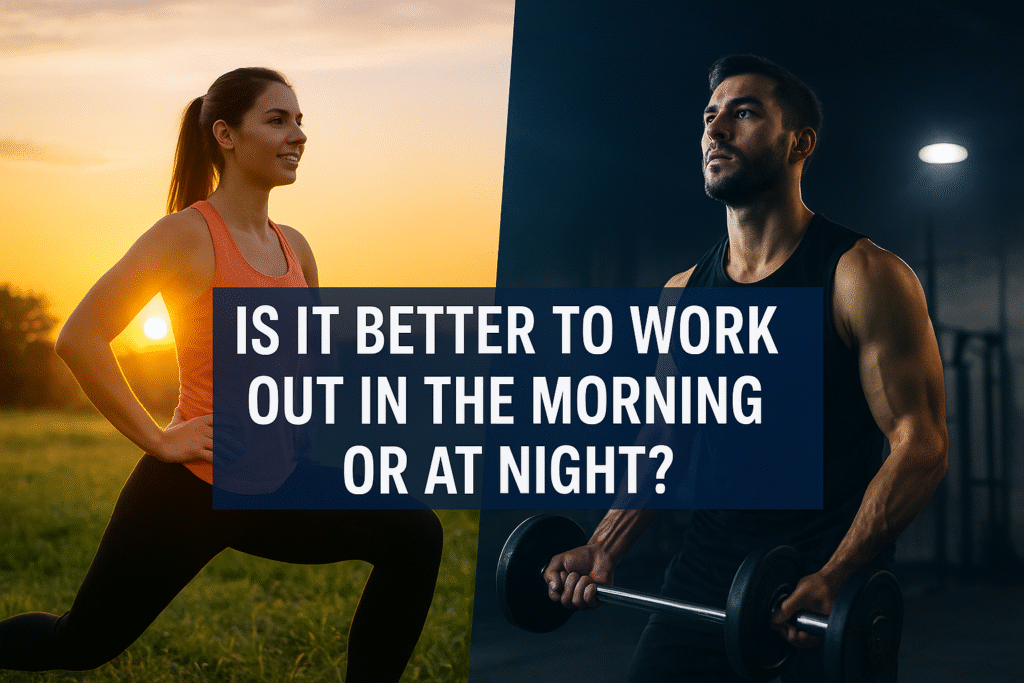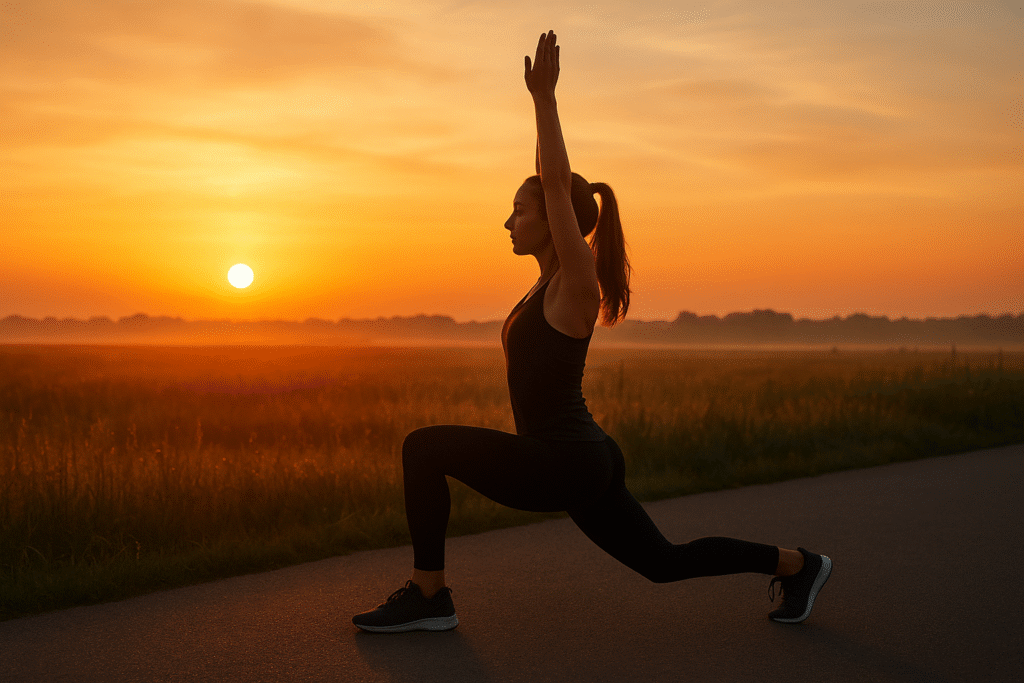1. Introduction
Have you ever wondered whether it’s better to hit the gym early or save your energy for later? The morning vs night workout debate has been around for years and for good reason. Many people juggle busy schedules, family responsibilities, and work-life balance, so it’s natural to ask: When does exercise give the best results?
In this post, we’ll break down what science says about morning vs night workouts, how timing affects fat burn, energy, and recovery, and most importantly how to pick the time that fits your lifestyle.
2. Why Workout Timing Matters
Your workout performance and recovery can depend on your body’s natural rhythm, temperature, and hormone cycles. Here’s how timing can play a role:
- Your body temperature rises throughout the day, helping muscles perform better and reducing stiffness later in the afternoon (Cleveland Clinic).
- Morning workouts may increase fat utilization when glycogen stores are lower (Health).
- Exercising early eliminates excuses and gives your day a productive kickstart (Mayo Clinic Health System).
- In contrast, evening workouts may boost strength and endurance, since your muscles are already warm and fueled (GQ).
Still, remember: while timing influences performance, consistency matters more. Showing up regularly will always beat the “perfect” time (GQ).

3. Morning Workouts: Pros & Cons
Pros
- You start your day with focus and energy and no chance for later distractions.
- Morning exercise may boost mood and sleep quality for some people (Health).
- Fasted workouts (if done safely) may slightly improve fat oxidation (HCA Midwest Health).
👉 What to Eat Before and After a Workout
Cons
- Performance can be lower early in the morning when your muscles are cold (PMC).
- If you’re short on sleep or nutrition, motivation may dip.
- In some regions, like Pakistan, early temperatures or safety may make early sessions challenging.

4. Evening / Night Workouts: Pros & Cons
Pros
- Higher body temperature and alertness can boost power output and reaction time (GQ).
- Evening workouts often fit better for those managing work, family, or studies.
- It’s a great way to unwind and relieve stress after a long day (Hinge Health).
Cons
- Training too close to bedtime may affect sleep quality.
- Post-work fatigue or social distractions can reduce consistency.
- Evening commutes or busy schedules can interfere with regular gym visits.

Still, many athletes prefer the night workout window because they feel more alert and physically ready
5. Which Is Better for Different Goals
| Fitness Goal | Best Time | Why |
|---|---|---|
| Fat loss / habit building | Morning Workouts | Slightly higher fat burn potential and habit consistency (Health) |
| Muscle gain / performance | Evening workouts | Higher strength and endurance later in the day (PMC) |
| Stress relief | Evening | Perfect for winding down after work (Hinge Health) |
| Sleep quality | Depends on the person | Some sleep better after morning sessions, others after early evening ones |
The best time is when you can stay consistent. A 6 PM workout you actually do beats a 6 AM plan you always skip!
6. How to Find Your Ideal Workout Time
Ask yourself:
- When do I naturally feel most energetic — morning or evening?
- What fits best with my daily schedule and responsibilities?
- How does my nutrition and sleep support this time of day?
Try both for a week each. Track your energy, mood, and performance. You’ll quickly notice which one feels right.
👉 5 Main Mistakes in Training That Hurt Your Progress
7. Tips to Make Any Workout Timing Work
- Schedule your workouts like appointments — don’t leave them to chance.
- Prep ahead: lay out clothes, snacks, or gym gear.
- Warm up properly, especially in the morning.
- After evening workouts, allow at least an hour before bed.
- Track your weekly consistency, not perfection.
- Listen to your body — adjust timing if fatigue builds up.
- Choose what fits your environment and lifestyle — if mornings are too hectic, there’s no shame in being a night trainer.
8. Conclusion: What Really Matters
So — morning or night? There’s no single right answer. Both have unique advantages, but the winner is the one you’ll stick with consistently. Your workout timing should match your energy levels, sleep, and lifestyle, not just what fitness trends say.
At the end of the day, consistency, recovery, and proper nutrition drive real results. Choose the time that makes you feel your best, stay committed, and the results will follow.
9. FAQs
Q1: Will I burn more fat if I work out in the morning on an empty stomach?
Possibly — some studies show higher fat oxidation in the morning, but total fat loss depends more on overall activity and diet (HCA Midwest Health).
Q2: Can evening workouts harm sleep?
Only if done too close to bedtime. Moderate evening workouts 2+ hours before sleep are usually fine (Cleveland Clinic).
Q3: Should I force myself to switch if one time fits my life better?
No — consistency beats perfection. The best time is when you’ll show up regularly (GQ).
Q4: Can I mix morning and evening sessions?
Yes — many people do. Just ensure proper rest between workouts.
Q5: Does this change for bodybuilders or athletes?
Slightly — strength and performance often peak later in the day, but recovery and nutrition remain most important (PMC).
